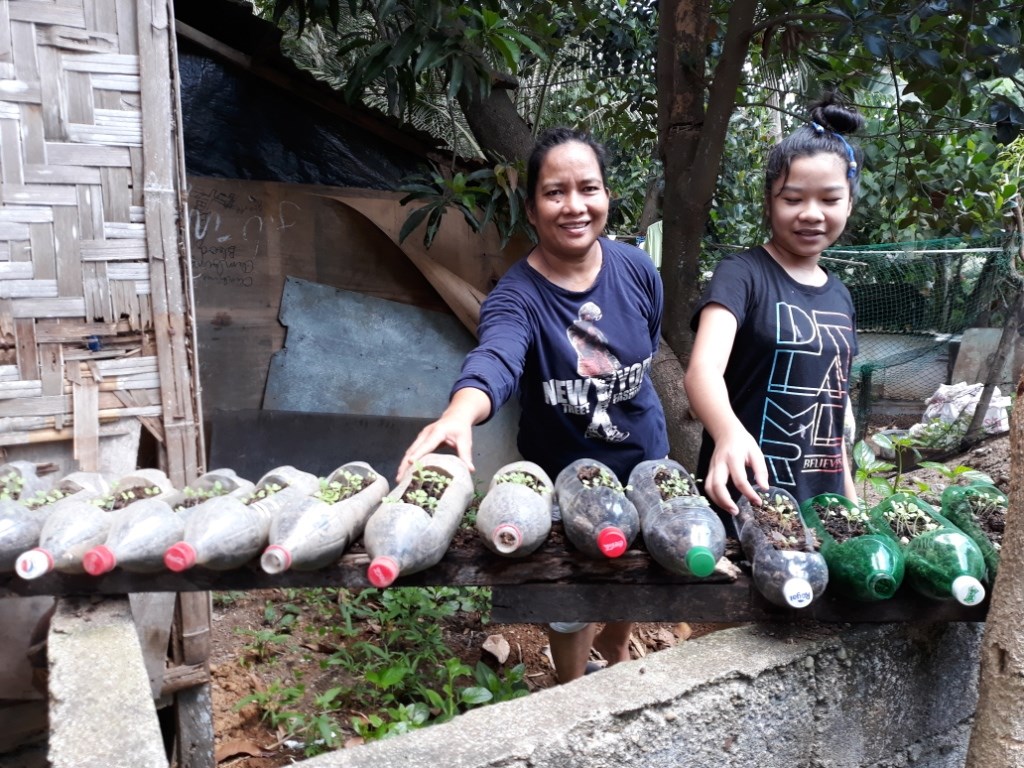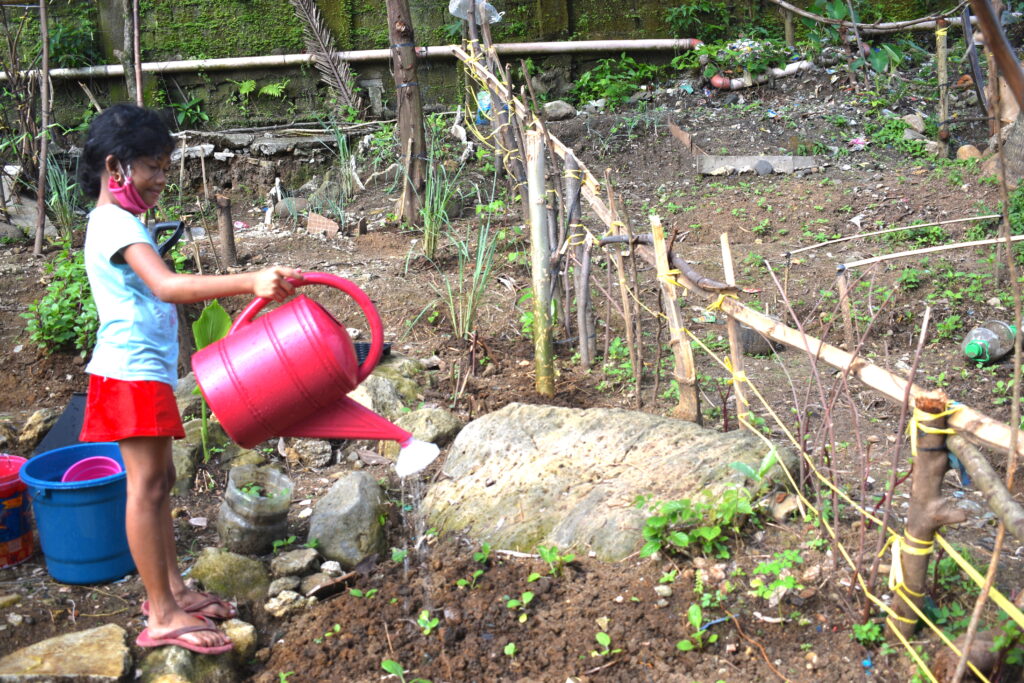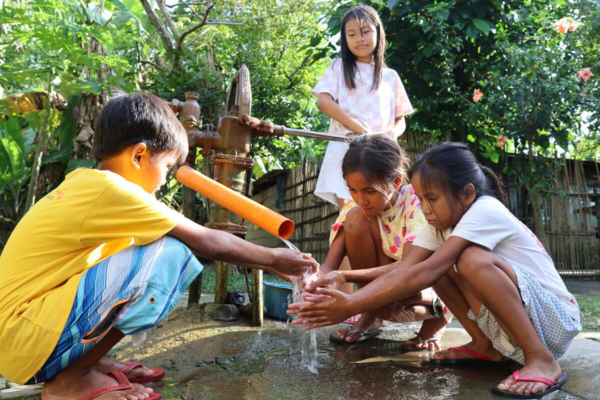Ensuring food security during the pandemic
World Vision recognizes that while relief items are crucial, especially for families whose livelihoods were disrupted, it is also necessary to help implement sustainable initiatives amid COVID-19.
In Kidapawan City, North Cotabato, the organisation has recently distributed gardening implements and vegetable seeds that include okra, beans, chinese cabbage, eggplant, cucumber, lettuce and tomatoes to families.
“Food security is crucial during this pandemic. We have already distributed food items to families but these can only last for a number of days. Helping them start their family-community garden will not only give them foods on the table but also a possible source of income as they grow their vegetables,” shares Samuel Ocon, World Vision’s Programme Officer.
For communities that are in the heart of the city though, gardening may be a challenge. To address this, World Vision coordination with the village leader, an idle land in the community suitable for agriculture was identified for the said initiative. Each family has an assigned area which they can cultivate. They were also taught on how to do urban/container gardening using recyclable materials.

Jasmin, 9 years old, said that she is happy to be part of the community garden. Her family is one of the members of the vegetable growers. A family of five, her parents are now trying to make ends meet. Her mother is a housewife while her father is a construction worker whose job was affected by the crisis.

“I am helping my mother in the garden so we have food to eat. We will sell some of our produce so I can add money to my small coin bank,” she smiles.
A rapid assessment conducted by World Vision in May showed that 92% of the household respondents’ livelihoods were disrupted, with the daily or casual laborers as the hardest hit. This resulted to 60%-68% of the households being unable to meet food and cooking expenses. The Food and Nutrition Research Institute(FNRI) said that a family of 6 needs at least Php2,200.80 each week to meet food needs. The assessment results, however, showed that even prior COVID, familiescould no longer provide the said amount. This further worsened during the pandemic as their average food spending was further reduced from Php 1 797.06 to Php 1184.82.
“This data shows that COVID-19 is not only affecting children’s nutrition but also their overall well-being. By empowering families to grow vegetables, we are hopeful that children will thrive despite this crisis,” adds Ocon.
Aside from this initiative, World Vision has also implemented unconditional cash transfer in the area, providing families with Php 1000 each.
Written by Joy Maluyo/ With Report from Rex Rubio/ World Vision Philippines









